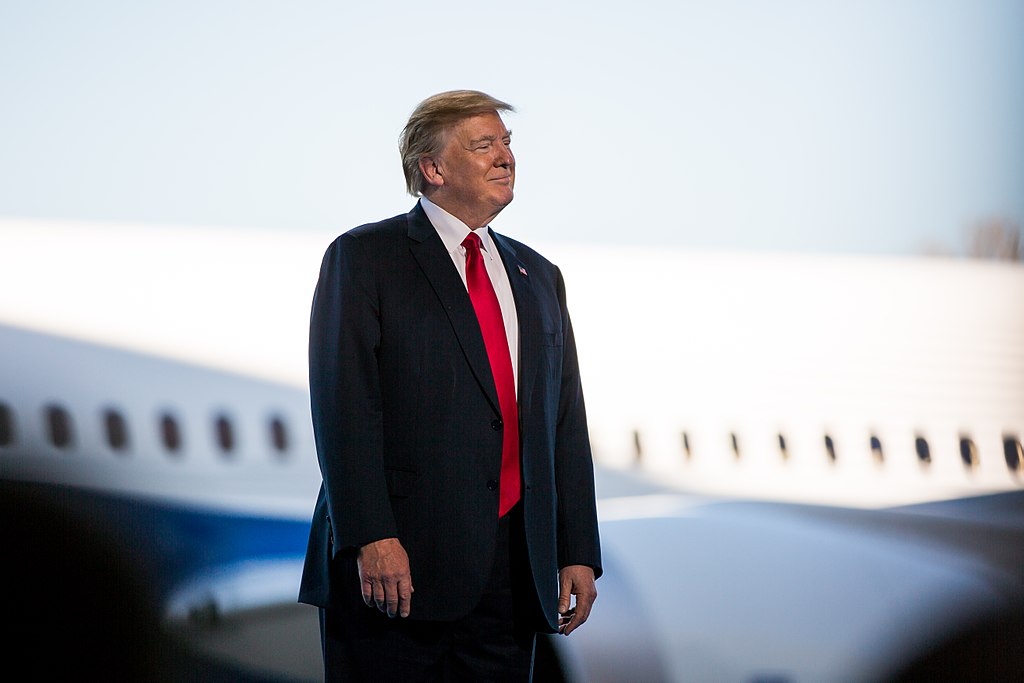Donald Trump’s second term is poised to bring sweeping changes to the U.S. visa system, with a focus on modernizing programs and prioritizing skilled labor. The administration’s controversial plans to tighten security, streamline processes, and shift focus toward merit-based immigration have sparked both praise and fierce backlash, signaling another heated debate on immigration policy.
Merit-Based Immigration Takes Center Stage
At the heart of Trump’s visa reform is a proposal to implement a points-based system favoring highly skilled workers. The plan aims to prioritize applicants with advanced degrees, specialized skills, or expertise in critical industries such as technology, healthcare, and engineering. Officials argue this approach will align immigration policies with economic needs and bolster the U.S. workforce.
Trump’s administration also plans to increase caps on employment-based visas while restricting family-based immigration. These measures, supporters claim, will reduce backlogs and ensure that the visa system prioritizes economic benefits. “This is about securing America’s competitive edge,” said an unnamed senior administration official.
However, critics argue that the changes could harm families and limit diversity. “Shifting to a merit-based system risks undermining the human side of immigration,” said Maria Lopez, an immigration advocate. Opponents also point to potential disruptions for industries reliant on seasonal and temporary foreign labor.
Stricter Oversight and Technology Upgrades
Trump’s plan includes stricter oversight of visa applications, with enhanced fraud detection and rigorous background checks to prevent abuse. In addition, the administration is rolling out new technology to streamline the application process, including digital platforms designed to reduce wait times and improve transparency.
H-1B visas, widely used by technology companies, are expected to see significant changes. Trump’s plan would increase scrutiny of employers and prioritize higher-paying jobs to discourage exploitation of foreign workers. While these measures aim to protect American jobs, critics warn they could stifle innovation by limiting access to global talent.
Meanwhile, seasonal visa programs, such as H-2A and H-2B, are also under review. The administration has signaled plans to expand these programs to meet labor shortages in agriculture and hospitality, while imposing stricter compliance requirements on employers.
Netizens Sound Off on Trump’s Visa Reform
Social media erupted following the announcement of Trump’s visa overhaul, with opinions sharply divided. User @TechLeader2025 tweeted, “Prioritizing skilled workers is exactly what this country needs. America must stay ahead in global competition.” Conversely, @FamilyFirst argued, “Cutting family-based visas is cruel. Immigration is about people, not just profits.”
The debate extended to seasonal programs, with @FarmersVoice posting, “Expanding temporary worker visas is a win for agriculture. We need labor to keep farms running.” Meanwhile, @WorkersRightsNow countered, “Tightening oversight on these programs will only create more exploitation of vulnerable workers.”
Supporters of H-1B changes praised the focus on high salaries. “Prioritizing better-paying jobs will ensure fairness and protect American workers,” wrote @PolicyAdvocate. However, @InnovationChampion warned, “Restricting H-1Bs risks driving top talent to other countries. America can’t afford to lose innovators.”
Challenges and Implications
Trump’s visa program reforms face significant hurdles, including potential legal challenges and resistance from advocacy groups. As details emerge, the debate will continue to highlight the complex balance between security, economy, and human rights.



 Trump and Merz Meet at White House Amid Iran Strikes and Trade Tensions
Trump and Merz Meet at White House Amid Iran Strikes and Trade Tensions  Marco Rubio to Brief Congress After U.S.-Israeli Strikes on Iran
Marco Rubio to Brief Congress After U.S.-Israeli Strikes on Iran  Middle East Conflict Escalates After Khamenei’s Death as U.S., Israel and Iran Exchange Strikes
Middle East Conflict Escalates After Khamenei’s Death as U.S., Israel and Iran Exchange Strikes  Suspected Drone Strike Hits RAF Akrotiri Base in Cyprus, Causing Limited Damage
Suspected Drone Strike Hits RAF Akrotiri Base in Cyprus, Causing Limited Damage  Zelenskiy Urges Change in Iran After U.S. and Israeli Strikes, Cites Drone Support for Russia
Zelenskiy Urges Change in Iran After U.S. and Israeli Strikes, Cites Drone Support for Russia  EU Urges Maximum Restraint in Iran Conflict Amid Fears of Regional Escalation and Oil Supply Disruption
EU Urges Maximum Restraint in Iran Conflict Amid Fears of Regional Escalation and Oil Supply Disruption  Trump Says U.S. Combat Operations in Iran Will Continue Until Objectives Are Met
Trump Says U.S. Combat Operations in Iran Will Continue Until Objectives Are Met  Supreme Court Backs GOP Lawmaker in New York Redistricting Fight Ahead of Midterms
Supreme Court Backs GOP Lawmaker in New York Redistricting Fight Ahead of Midterms  Failure of US-Iran talks was all-too predictable – but Trump could still have stuck with diplomacy over strikes
Failure of US-Iran talks was all-too predictable – but Trump could still have stuck with diplomacy over strikes  Israel Prepares Weeks-Long Military Campaign Against Iran Amid Escalating Air Strikes
Israel Prepares Weeks-Long Military Campaign Against Iran Amid Escalating Air Strikes  Rubio Says U.S. Would Not Target School After Deadly Iran Strike Reports
Rubio Says U.S. Would Not Target School After Deadly Iran Strike Reports  Does international law still matter? The strike on the girls’ school in Iran shows why we need it
Does international law still matter? The strike on the girls’ school in Iran shows why we need it  Pentagon Downplays ‘Endless War’ Fears After U.S. Strikes on Iran Escalate Conflict
Pentagon Downplays ‘Endless War’ Fears After U.S. Strikes on Iran Escalate Conflict  Trump Announces U.S. Strikes on Iran Navy as Conflict Escalates
Trump Announces U.S. Strikes on Iran Navy as Conflict Escalates  U.S. Deploys Tomahawks, B-2 Bombers, F-35 Jets and AI Tools in Operation Epic Fury Against Iran
U.S. Deploys Tomahawks, B-2 Bombers, F-35 Jets and AI Tools in Operation Epic Fury Against Iran  Trump to Attend White House Correspondents’ Dinner 2026, Ending Long Boycott
Trump to Attend White House Correspondents’ Dinner 2026, Ending Long Boycott 




























